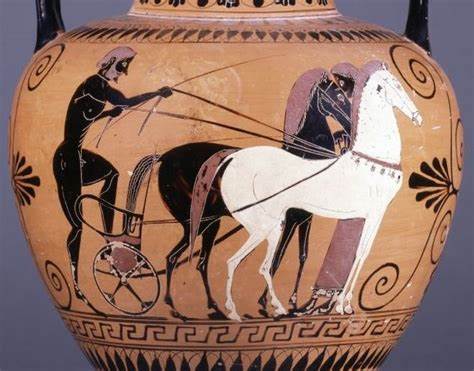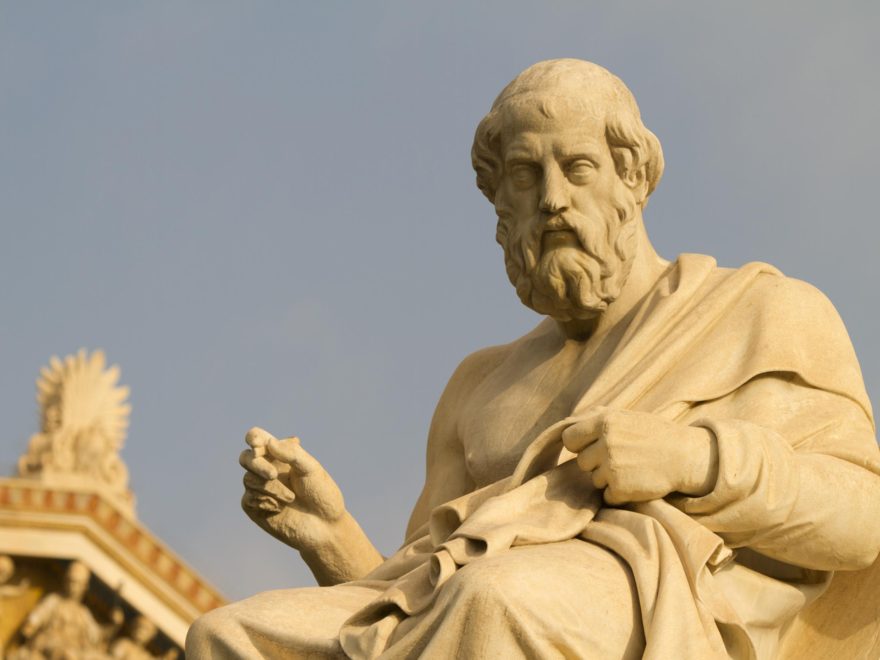Tag: Plato
-

The Soul of Education, Part 2: Plato’s Immortal and Tripartite Soul
In the introduction to this series, we explained how our view of the soul, or nature of a human being, will necessarily impact our practice of education. In our modern world we are bombarded by so many competing views of the soul, both implicit and explicit, that we operate in a confused mess. From behaviorism…
-

The Soul of Education, Part 1: What Is a Human Being?
Every educational philosophy necessarily relies on a pre-existing view of the human person. Anthropology informs pedagogy. Many of the problems that classical Christian educators have identified in conventional education have their roots in a false or insufficient view of human beings. The factory model of education, for instance, underrates certain aspects of human development and…
-

Practicing Happiness: Ancient Wisdom for Our Modern World
The pursuit of happiness is one of three rights originally drafted by Thomas Jefferson in the “Declaration of Independence.” These “unalienable rights” are “life, liberty and the pursuit of happiness.” It is an odd turn of phrase, but one that has a profound backdrop to it, one which we have perhaps lost today. It is…
-

Irrigating Deserts in Schools: The Redemption of Emotion in an Age of Feeling
In a world of sensationalistic news, propaganda, and emotions running in overdrive, our students need specialized training in how to navigate life’s challenges with wisdom. Dorothy Sayers and C.S. Lewis, two favorites in the classical education renewal movement, offered different, but related, educational solutions to respond to emotive and misleading propaganda. Dorothy Sayers, known for…
-

Expanding Narration’s History in the late Middle Ages: Bernard of Chartres from John of Salisbury’s Metalogicon
This is the third blog article expanding the short history of narration I laid out a year ago. In the last two I expanded my treatment of John Amos Comenius to engage in detail with the passages from The Great Didactic and the Analytical Didactic that recommend activities that Charlotte Mason would have called narration.…
-

Educating in Desire for the Kingdom
In the Christian, classical renewal movement we often draw the distinction between an education focused on information and an education focused on formation. Education in information focuses on the dissemination of facts, critical thinking skills, and beefing up the intellect, while education for formation prioritizes the process of developing a certain type of person. Both…
-

The Value of Objective Value: C. S. Lewis on Renewing Education
No matter what age you or your children are, I highly recommend The Chronicles of Narnia by C. S. Lewis for summer reading. They are lighthearted yet full of depth. I am reading aloud The Silver Chair, the fourth book in the seven-book series. For those who know the general contours of the series, this…
-

Practicing in the Dark or the Day: Well-worn Paths or Bushwalking, Artistry and Moral Virtue Continued
In my last article we explored the analogy between Aristotle’s intellectual virtue of artistry or craftsmanship (Greek: techne) and moral virtue, taking our cue from the Nicomachean Ethics book II. Along the way we discovered the foundation for these two types of excellence in habit development or the neural networks of the brain. Excellence, according…
-

Life in Plato’s Republic, Part 2: Building the Just City
“Don’t you know that the beginning is the most important place of every work and that this is especially so with anything young and tender? For at that stage it’s most plastic, and each thing assimilates itself to the model whose stamp anyone wishes to give it.” Plato, Republic, Book II Welcome back to my…
-

Life in Plato’s Republic, Part 1: Is Justice Worth it?
“Whether we like it or not, whether we know it or not, we are all more or less Platonists. Even if we reject Plato’s conclusions, our views are shaped by the way in which he stated his problems.”1 In today’s article, I begin a new series on Plato’s Republic. I’ve been wanting to start this…
